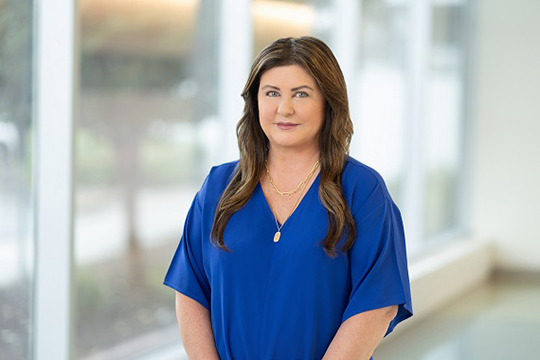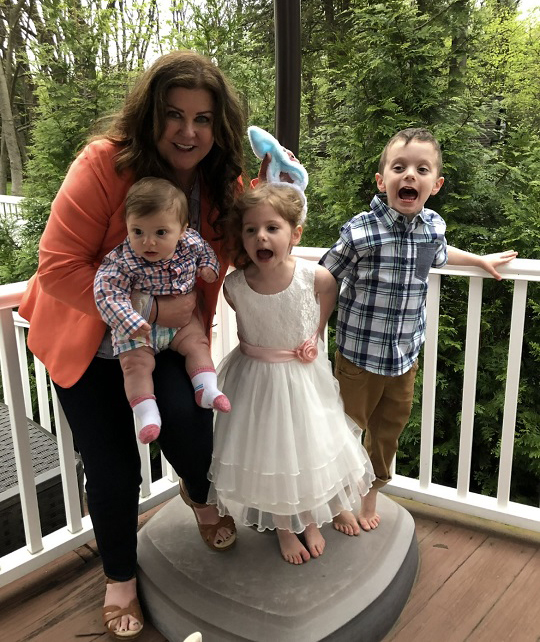“Based on all my nursing experience and my own personal experience with breast cancer, I feel like I can empathize with patients from diagnosis, through their treatment, recovery, and beyond.”

Liz Steinwandtner, RN, BSN, NEBC, OCN, has been a nurse since 1980, working in various specialties. Then, following her own breast cancer journey, her nursing path led her to help other women with breast cancer as a Research Nurse Clinician with The Cancer Center at Cooperman Barnabas Medical Center (CBMC) in partnership with Rutgers Cancer Institute.
“A lot of people thought at first, maybe that’s not a good idea for you, it might hit to close to home, but it hasn’t been that way at all,” Liz shares. “Based on all my nursing experience and my own personal experience with breast cancer, I feel like I can empathize with patients from diagnosis, through their treatment, recovery, and beyond.”
Elizabeth’s Story
In 2013, Liz went for her mammogram a few months late because of a busy work schedule. Feeling well and with no indication that anything could be wrong, she was surprised to hear that her results showed an abnormality. The next step was a biopsy at the RWJBarnabas Health Ambulatory Care Center which confirmed a breast cancer diagnosis. In meeting with breast surgeon Sarah Schaefer, MD, it was decided a lumpectomy was her first step in treatment.
Following surgery, she discussed treatment options with Richard Michaelson, MD, who at the time was Medical Director of The Cancer Center, now retired, and met with Alison Grann, MD, Chair of the Department of Radiation Oncology as well as Director of Network Integration and Quality, Radiation Oncology, Northern Region RWJBarnabas Health.
After analyzing Liz’s history, Dr. Grann suggested they wait for the results of her genetic testing before making any final decisions. After testing revealed Liz had a strong chance of recurrence with the possibility of a more aggressive type of breast cancer, she decided to have a bilateral mastectomy with Dr. Shaefer.
As a research nurse clinician, Liz works with breast cancer patients who participate in clinical trials. She assesses patients for any adverse effects they experience and adheres to protocol guidelines to provide the best possible care. She offers clinical support with her nursing knowledge. Emotional support is enhanced by being able to empathize at a deeper level because of her own personal experience.
“I was shocked when I was first told my diagnosis, but it at some point you realize it is not the end of the world. We have to jump through a series of hurdles to cross the finish line,” Liz shares. “I’ve learned that not only through my own experience, but especially through the positive patient outcomes I have seen in nursing position.”

“Research has come such a long way in the past 30, 20, even 10 years. I can’t believe that outcomes I am seeing now with patients on clinical trials. I think the future is very promising, and it will change the future of breast cancer.”
If there is one thing Liz could advise, it would be the following, “Never miss or delay your mammogram. Also, remember to self-exam, I see many patients who found their breast cancer themselves.”